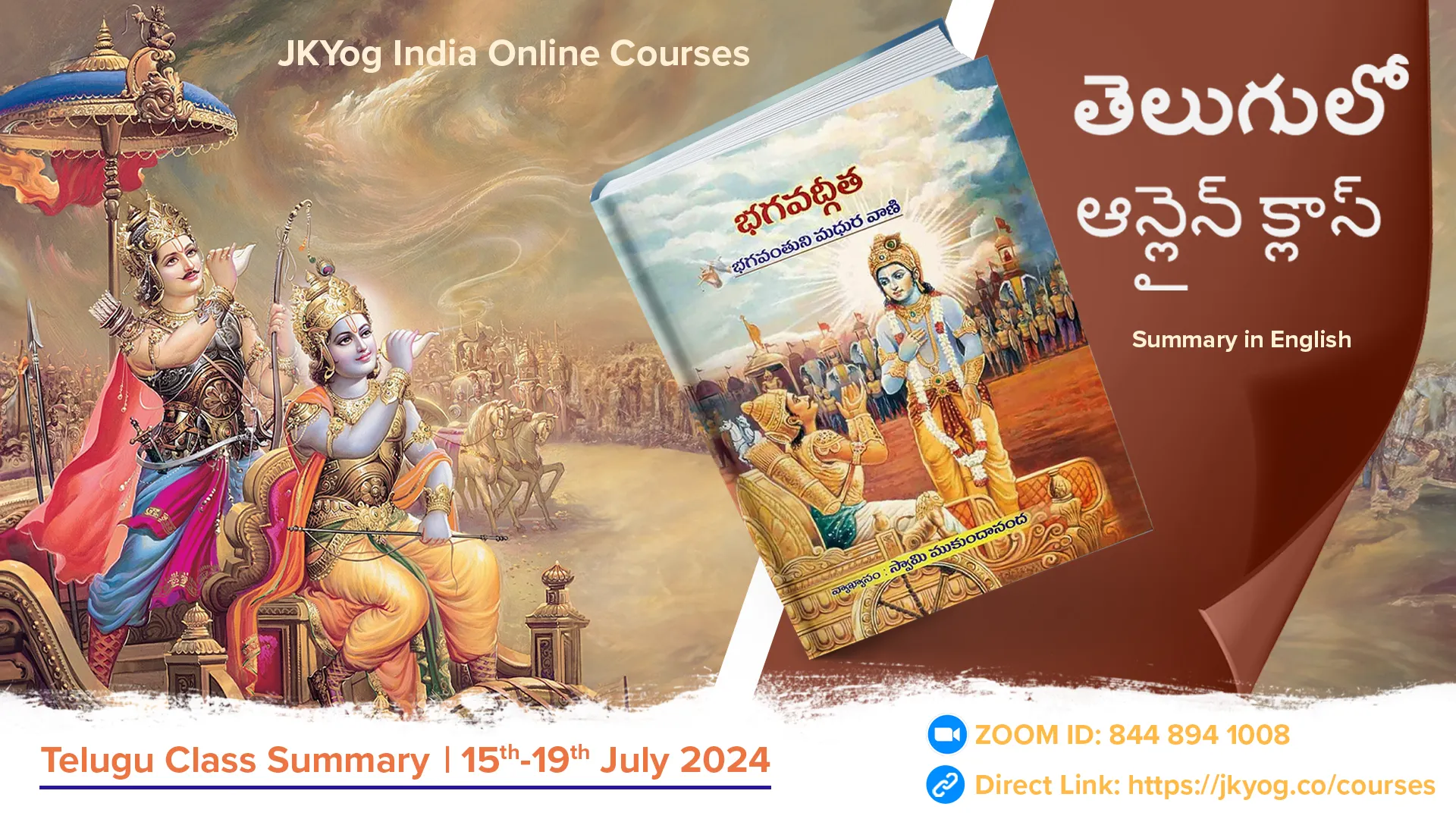The context:
In Bhagavad Gita Chapter 2, verses 66 to 72, Shree Krishna teaches that self-discipline and control over the mind and senses are essential for peace and happiness. He explains that material desires, greed, and ego disturb one's tranquillity. An enlightened person can maintain inner peace despite external temptations by purifying the intellect through spiritual knowledge. Shree Krishna advises Arjun to renounce material desires and egoism to attain true inner peace and ultimately reach the Supreme Abode of God, transcending the cycle of rebirth.
A person who lacks self-discipline and fails to control their mind and senses cannot develop a firm intellect or maintain steady contemplation on God. Peace is unattainable without uniting the mind with God; without peace, happiness is impossible. This verse emphasises the importance of knowing God to achieve peace, contrasting it with the unrest caused by ignoring God and being consumed by material desires.
Much like a powerful gust can steer a boat off its intended path, even a single sense can divert the mind's attention and mislead the intellect. The Kaṭhopaniṣhad explains that God designed our five senses to be outward-facing, which naturally draws them to external objects and can lead the mind astray.
Therefore, O Arjun, a person who has controlled their senses from indulging in sensory objects, is firmly rooted in transcendental wisdom. Through transcendental knowledge, enlightened individuals purify their intellect, enabling them to control their minds and senses. In contrast, when materially conditioned, the senses dominate the mind and lead the intellect astray. However, with a purified intellect achieved through spiritual knowledge, one can restrain the senses and maintain the intellect's alignment with divine wisdom.
Just as the ocean remains undisturbed despite the constant influx of rivers, illustrating a state of perfect equilibrium as described by Shree Krishna with the term āpūryamāṇaṁ, a wise person maintains inner peace despite the constant presence of tempting desires around them. It is this steadfastness and inner tranquillity, rather than the pursuit of satisfying one's desires, that brings true peace (śhānti).
In this verse, Shree Krishna identifies material desires, greed, ego, and proprietorship as sources of disturbance to one's peace and advises Arjun to relinquish them, explaining that an individual who renounces all material desires and lives without greed, a sense of ownership, and egoism achieves true inner peace.
"O Parth, such is the state of an enlightened soul that having attained it, one is never again deluded. Being established in this consciousness even at the hour of death, one is liberated from the cycle of life and death and reaches the Supreme Abode of God."
Summary: JKYog India Online Class- Bhagavad Gita [Telugu]- 15 July to 19 July 2024.








